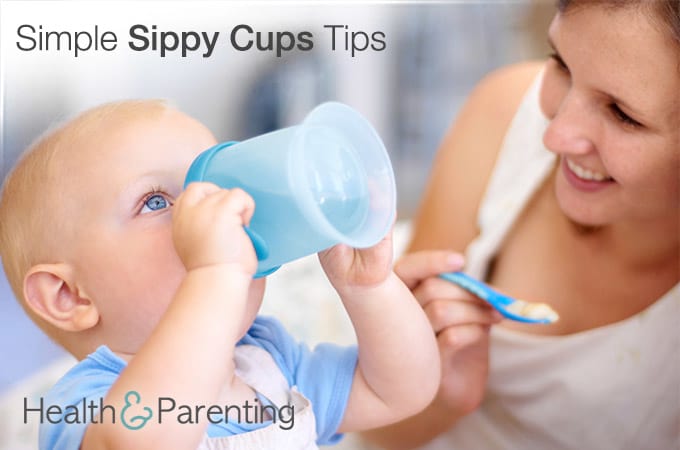Eventually, your little one will be ready to transition from the breast or a bottle to a sippy cup. But even before you say bye-bye to the bottle or breastfeeding, it may be a good idea to get your baby used to a sippy cup. It might be easier to get an infant accustomed to drinking from a cup than a stubborn toddler.
But how do you know when the time is right? You need to wait until your baby can sit up and hold an object with both hands. Although it may vary, most babies are ready to use a sippy cup around seven to nine months.
Keep in mind, some babies may not be interested in using a sippy cup until they are a little older. But many pediatricians recommend introducing a sippy cup by 12 months to decrease a baby’s chances of developing tooth decay.
Drinking from a sippy cup helps your baby improve her motor skills and also gives her a sense of independence. Plus, a sippy cup helps your baby master the skills needed to use a big-kid cup in the future.
To get your baby started, select a cup that is sturdy and has handles, so it will be easy for her to grasp. A sprout that is soft and pliable may make sipping easier for your baby, especially at his first. If you choose a plastic sippy cup, make sure the package is labeled BPA-free.
Some babies may be more likely to try drinking from the cup if it has a liquid they are familiar with, such as breastmilk. If that does not work, consider trying something new, such as diluted fruit juice, which might get your baby interested in the cup.
Show your baby how to use a sippy cup by doing it yourself. For example, consider placing a sippy cup in front of your baby. Put your own cup down and pick it up and drink from it. Your little one may mimic you and pick up the sippy cup without prompting.
Don’t worry if your baby does not learn how to use a sippy cup right away. All babies learn at their own pace. At first, your baby may just play with the cup and not drink much. If your baby is not quite getting the hang of it, you may have to guide the cup to his mouth to teach him how to use it.
Don’t worry about spills or your baby making a mess. Instead, enjoy the fact your baby’s skills continue to develop and she is becoming a little more independent.
Written by MaryAnn DePietro @ writerlady34
This information is not intended to replace the advice of a trained medical doctor. Health & Parenting Ltd disclaims any liability for the decisions you make based on this information, which is provided to you on a general information basis only and not as a substitute for personalized medical advice. All contents copyright © Health & Parenting Ltd 2016. All rights reserved.










